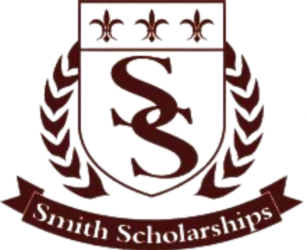****this is old 2016***
Q: Should I apply before the ending deadline?
A: Yes, we encourage all applicants to send their paperwork as soon as completed and in advance of the deadline.
Q: I can’t apply for FAFSA until after January 1, and it is required for the Smith Scholarship
A: The FAFSA becomes available in early January each year, and there are different deadlines for different programs. For the 2015–16 year, you can apply between Jan. 1, 2015, and June 30, 2016. However, there are a few federal student aid programs that have limited funds, so be sure to apply as soon as you can. Please have your FAFSA ID before the first Deadline. (December 5, 2015)”
Q: I am STILL confused with the two deadlines!
A: Part 1 of the Scholarship is to get applicants to take advantage of other Scholarships that are offered.
Q: If I am a home schooled graduating senior, may I apply?
A: Yes.
Q: If I am already a college student may I apply?
A: No. At the present time scholarships are limited to graduating Alabama high school seniors.
Q: Must I be a U.S. Citizen?
A: No.
Q: May a recipient use the scholarship to attend summer school?
A: No. Unless the recipient is participating in Study Abroad as outlined in the SSF Guidelines.
Q: What grade point average must an applicant have to apply?
A: C+. A copy of the student’s transcript must be attached to the application.
Q: What ACT/SAT score must an applicant have to apply?
A: There is no required test score, but a student must complete the ACT or SAT, OR college entry test and a copy of those scores must be attached. The student must meet admission requirements for admittance to the institution they will attend under the SSF Program. Necessary scores vary from institution to institution but 17 is typically the lowest ACT that will be accepted at many traditional four year schools. It is advisable to retake your ACT several times to increase your scores. Ask your high school counselor for waver forms to cover the fees of these tests and use study guides and practice test available online and at your local library.
Q: Must a student give proof of acceptance by a college or university to apply for the scholarship?
A: No. Students do not have to provide proof of acceptance with the application. However, before a scholarship can be awarded, the applicant must obtain acceptance at the institution or institutions identified by the Board of Trustees in the Award letter.
Q: Do letters of recommendation have to be attached?
A: Yes. Part II of the application requires the applicant to submit three letters of recommendation. Ask people who know you well to write a letter. Make sure the person knows the name of the scholarship for which you are applying, your chosen careers and personal information. The sincere heartfelt letters make the best impression as they help accurately portray the applicant. The level of professional standing of the writer is of little or no importance. Letters of Recommendation are crucial to identifying deserving students.
Q: Must my application be signed?
A: Yes. The applicant, counselor, and parent/legal guardian must sign.
Q: Will I be notified when my application is received?
A: The online application system should indicate that your application has been successfully submitted. However the Foundation does not send a separate notification due to the large number of applications. Some applicants may be notified for additional or follow-up information during the review process.
Q: May a recipient live off campus?
A: All freshmen scholarship recipients must live on campus. Scholars may request to live off campus after their freshmen year. SSF Guidelines permit upperclassmen in GOOD ACADEMIC STANDING and FULL compliance of SSF requirements to select “Non-Dorm” accommodations our payment is limited to DCOA Calculations as set forth in the SSF Guidelines.
Q: Do I have to attend the same college the whole time?
A: It is preferred that the scholarship recipient attend the same school for four years in order to obtain a degree during that time frame. Requests for transfers may be made under SSF guidelines.
Q: Can I work and go to school?
A: Yes. All scholars are required to work up to 12 hours. Recipients are required to do community service hours as part of their annual reapplication.
Q: Will I be allowed to do work study?
A: Absolutely. It is wise to apply for work study jobs at the institution as soon as possible as those positions fill up quickly. Work study jobs are on campus and the need for a car or extra gas is often avoided.
Q: Should I continue to apply for other scholarships, work studies, and FAFSA?
A: An applicant must apply for a minimum of 3 other scholarships and recipients must apply for all available financial aid or other internal scholarships at a college/university, except for loans, before the Foundation will make payments to a school. Federal and State programs are available for low income students. Recipients must apply for these programs. After being notified of acceptance of federal aid the student must then formally accept it through their college financial aid office. If you do not accept, the funding will not be available for you.
Q: Will I be penalized for any other scholarships that I may have received?
A: Definitely not. This allows the Foundation to efficiently utilize its funds for the benefit of more students. The Smith Scholarship is a “last dollar” scholarship that is applied only after all other scholarships and aid are applied to the student’s education costs.
Q: What does the scholarship pay for?
A: Tuition, room, board, books, and required fees. SSF recipients’ fees are calculated using the University’s Direct Cost of Attendance (“DCOA”) as prepared by the University and SSF after any other funding has been applied up to $15,000 each year along with dorm packs and opportunities to receive professional attire, winter clothing, and study abroad conditioned on compliance with SSF guidelines and individual scholar needs.
Q: May a recipient of the scholarship use the funds to attend any university, college, junior college or technical school?
A: Each situation will be evaluated on a case by case basis depending on the student’s grades, test scores, anticipated major, proximity to family, and other available resources, needs and scholarships.
Q: What if I am only interested in attending a specific University or Institution?
A: The selection of an education institution should be based on a number of factors related to financial need and academic readiness. Family or personal allegiance to a specific university (often due to sports) will not be considered an acceptable factor in evaluating a student’s preference of school. If an applicant is unwilling to consider a variety of educational options and is insistent on attending a specific school, they should probably not apply.
Q: Are recipients guaranteed or entitled to a specific financial amount of funding?
A: No. Funding and program participation varies pursuant to SSF Guidelines.
Q: What if I do not like rules and have difficulty adhering to instructions?
A: The SSF Programs both reward and require continued focus on education and volunteer opportunities. Being a Smith Scholar is a privilege and requires a very high degree of motivation, accountability and devotion to the SSF mission.
SSF guidelines answer many of these questions and will control and supersede the information contained herein.

